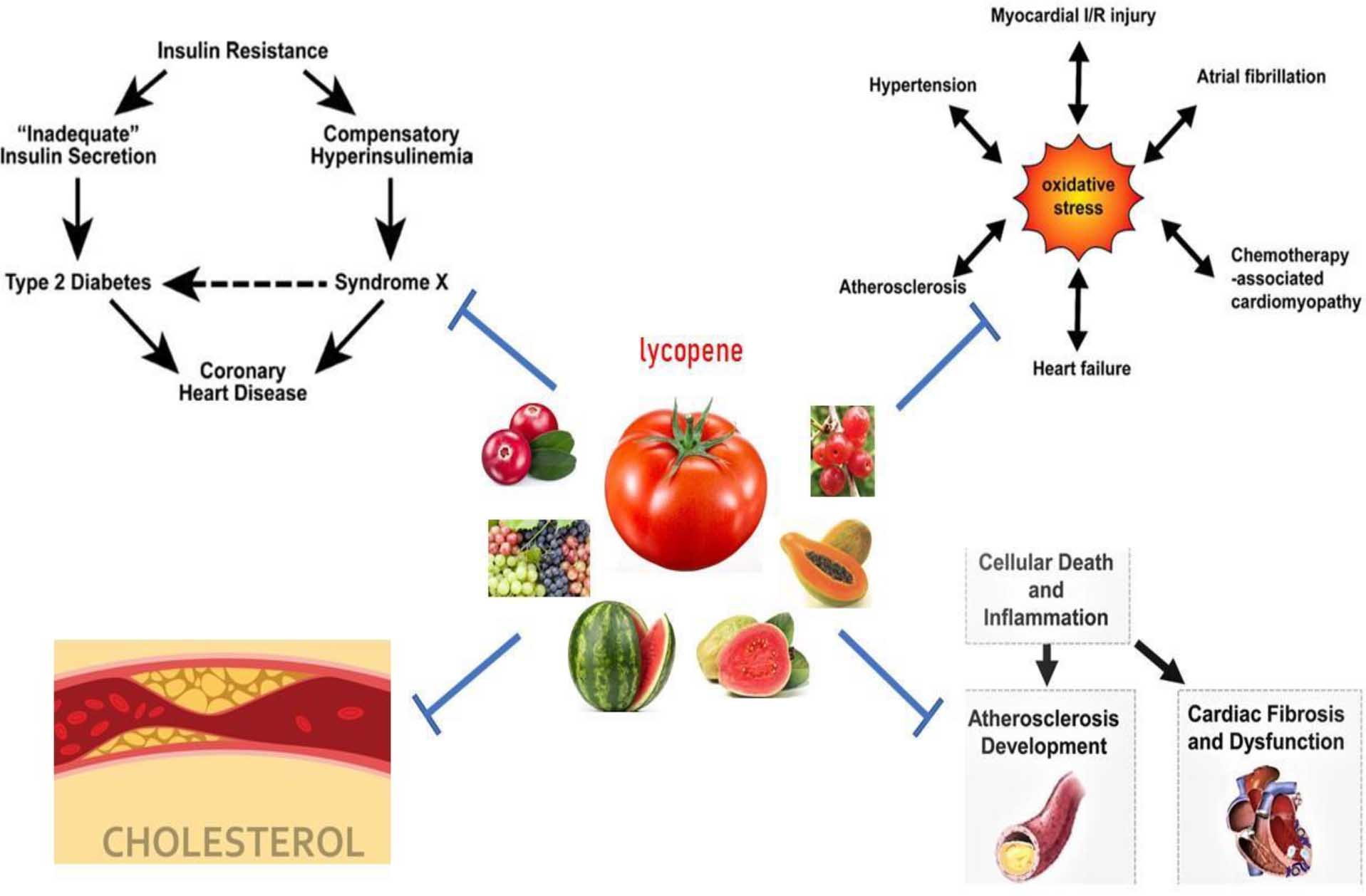Risk reduction and prevention of cardiovascular diseases: biological mechanisms of lycopene
DOI:
https://doi.org/10.31989/bchd.v5i10.975Аннотация
Background and aims: The conservational effects of dietary interventions as advantageous instruments in the primary and secondary prevention of cardiovascular disease (CVD) have gotten more attention in recent years. Numerous nutritional epidemiological studies have highlighted the ability of diets to decrease costly care and treatments as well as adverse side effects from standard treatments. Lycopene is a non-pro-vitamin A carotenoid that is present in tomatoes, processed tomato products, and different fruits like watermelon, autumn olive, gac, pink grapefruit, pink guava, papaya, sea buckthorn, and wolfberry. As one of the most powerful antioxidants among dietary tetraterpenoids, lycopene can also assist in lowering the risk of early death and extending life in patients with heart disease. By reducing the destructive effects of free radicals along with total and “bad” LDL cholesterol levels while increasing “good” HDL cholesterol, lycopene holds the power to reduce the risk factors of heart disease. Several studies have investigated a reduction of oxidized-LDL (oxLDL) cholesterol levels following lycopene consumption which supports these claims and suggests the conceivable function of lycopene in the blockage of oxidative stress-associated CVD. A negative correlation between serum lycopene concentration and mortality of people with metabolic syndrome was found.
Over 10 years, researchers observed a 39% decreased chance of premature death in individuals with the metabolic disease who had the highest blood concentrations of lycopene. Lycopene’s protective impacts are especially beneficial in those with low blood antioxidant levels or high levels of oxidative stress. This includes older adults, smokers, and diabetic individuals or other vascular disorders. Lycopene intake has been thought to reduce the risk of obesity, insulin resistance, and diabetes mellitus.
Lycopene acts as an antihypertensive agent by impeding the angiotensin-converting enzyme and improving the production of nitric oxide (NO) in the endothelium. The purpose of this review is to summarize the possible mechanisms of lycopene in the prevention of CVD.

Keywords: Lycopene, Risk factors of heart disease, Antioxidants, Carotenoids, Cardio-metabolic, Insulin resistance
Опубликован
Выпуск
Раздел
Лицензия
Copyright (c) 2022 FFC/Bioactive Compounds in Health and Disease

Это произведение доступно по лицензии Creative Commons «Attribution-NonCommercial» («Атрибуция — Некоммерческое использование») 4.0 Всемирная.
Any manuscripts or substantial parts of it, submitted to the journal must not be under consideration by or previously published in any other journal or citable form. Authors are required to ensure that no material submitted as part of a manuscript infringes existing copyrights or the rights of a third party. In submitting one's article in any form, the author has assigned the FFC publishing rights and has agreed to an automatic transfer of the copyright to the publisher. This is so that the FFC may create print option journals, for example, at the FFC’s discretion. If the author wishes to distribute their works by means outside of the FFC, for example within their community, they will have to place a request.
Correspondence concerning articles published in Functional Foods in Health and Disease is encouraged. While derivative works (adaptations, extensions on the current work, etc.) are allowed, distribution of the modified material is not allowed without permission from the FFC.